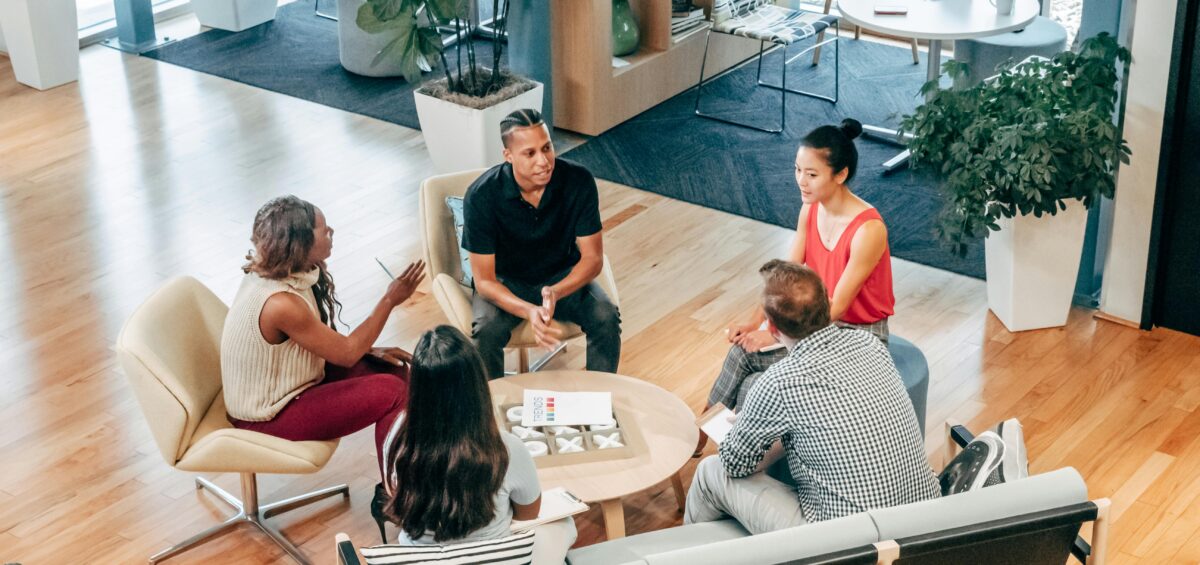What is the Purpose of Peer Consultation in Counseling?
By Shannon Heers
Hello, fellow therapists! Ever feel like you’re on a lonely island, surrounded by a sea of case notes and client appointments? You’re not alone (pun intended). Many private practice therapists experience isolation and a lack of clinical support. Enter: Peer Consultation. Think of it as a lifeline, a buoy that keeps you afloat in the sometimes choppy waters of private practice.
In this blog, we’ll dive into the purpose of peer consultation, how it can transform your practice, and why it might just be the secret sauce you’ve been missing.

The Power of Peer Consultation
Peer consultation is a structured process where therapists come together to discuss cases, share experiences, and provide mutual support. It’s like group therapy but for therapists. And yes, it’s as helpful as it sounds.
Why Peer Consultation?
- Combat Isolation: Private practice can be a lonely gig. Peer consultation brings you into a community where you can share the highs and lows of your practice. It’s like having a group of friends who totally get you.
- Fresh Perspectives Sometimes you’re too close to a case to see it clearly. Your peers can offer new viewpoints and insights that you might have missed. It’s like having extra pairs of eyes (but less creepy).
- Professional Growth: Engaging with other therapists can spark new ideas and approaches. It’s a fantastic way to keep learning and growing in your practice. Think of it as continuous education without the boring seminars.
- Support and Validation: Sharing your struggles and successes with peers can be incredibly validating. It reminds you that you’re not alone in your challenges. Plus, it’s nice to have someone pat you on the back, even if it’s virtual.
How to Make the Most of Peer Consultation
Finding Your Peeps
Choosing the right group is crucial. Here are some tips:
- Compatibility: Make sure the group’s values and therapeutic approaches align with yours.
- Diversity: A mix of backgrounds and specialties can enrich the experience.
- Facilitator: A good facilitator can keep discussions on track and ensure a safe environment.
Setting Goals
Before you jump in, set some clear goals. Do you want to improve your skills? Gain new insights? Build a support network? Having specific objectives will help you get the most out of your consultations.
Active Participation
Show up ready to engage. Share your experiences, ask questions, and provide feedback. The more you put into the process, the more you’ll get out of it. It’s like exercise – the harder you work, the better the results (but without the sweat).
The Benefits of Peer Consultation
Enhanced Clinical Skills
Discussing cases with peers can help you develop new strategies and improve your therapeutic techniques. It’s like getting a mini-education every time you meet.
Reduced Burnout
Talking with others who understand your struggles can reduce feelings of burnout. It’s like a pressure valve for the stress of private practice.
Improved Client Outcomes
When you gain new insights and strategies, your clients benefit too. Peer consultation can lead to better treatment plans and outcomes. It’s a win-win.
Professional Accountability
Regularly scheduled consultations can keep you accountable and motivated to continue your professional development. It’s like having a gym buddy, but for your brain.
Building a Supportive Community
Peer consultation isn’t just about professional growth – it’s also about building a supportive community. This sense of community can be invaluable in a field where isolation and burnout are common.
Making Connections
Strong connections with your peers can lead to lasting professional relationships. These connections can provide ongoing support, collaboration opportunities, and a sense of camaraderie.
Ongoing Learning
Peer consultation encourages ongoing learning and professional development. By regularly engaging with your peers, you stay updated on the latest research, therapeutic techniques, and industry trends.
Self-Care and Wellbeing
Participating in peer consultation can also contribute to your overall well-being. Having a space to discuss challenging cases, share successes, and receive support can reduce stress and prevent burnout. Prioritizing self-care through professional support is essential for maintaining a sustainable and fulfilling practice.
What Next?
Peer consultation offers a wealth of benefits for private practice therapists like yourself. From enhanced professional growth and reduced isolation to improved case outcomes and professional accountability, the advantages are numerous. By choosing the right group, setting clear goals, and actively participating, you can maximize these benefits and elevate your practice.
How we can help
So, why not give it a try? Embrace the power of peer consultation and see how it can transform your professional journey. Together, we can create a supportive community and provide the highest quality care to those we serve. Plus, it’s always nice to have a group of peers who understand when you need to vent about that one client who never follows through with homework. Schedule a call today to get started on finding the right clinical consultation group for you!
Author Bio
 Shannon Heers is a psychotherapist, approved clinical supervisor, guest blogger, and the owner of a group psychotherapy practice in the Denver area. Shannon helps adults in professional careers manage anxiety, depression, work-life balance, and grief and loss. Follow Firelight Supervision on Instagram and Facebook.
Shannon Heers is a psychotherapist, approved clinical supervisor, guest blogger, and the owner of a group psychotherapy practice in the Denver area. Shannon helps adults in professional careers manage anxiety, depression, work-life balance, and grief and loss. Follow Firelight Supervision on Instagram and Facebook.



